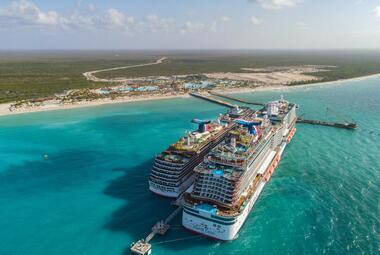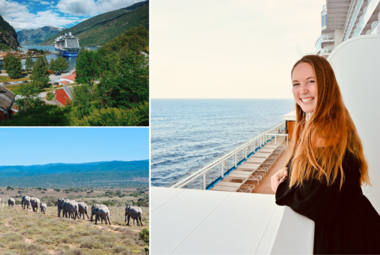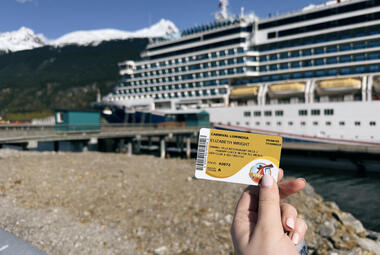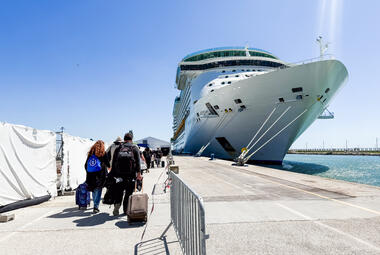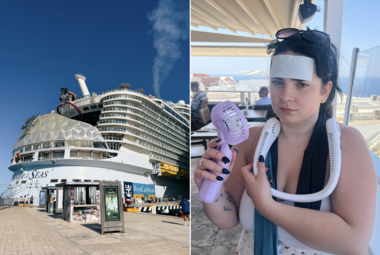Earlier this month, Hurricane Milton became the second-most intense Atlantic hurricane recorded over the Gulf of Mexico. The massive storm impacted many cruise ships, ranging from revised itineraries to delayed departures and canceled sailings.
At peak intensity, Milton was the fifth-most intense Atlantic hurricane on record. The hurricane made landfall on Florida's west coast, with preliminary damage estimates placing the total cost of destruction at over $30 billion.
With over one month until the 2024 Atlantic hurricane season ends, four cruise experts took the time to share their number one tip for traveling during this unpredictable time of year.
Read more: How cruise lines are preparing for an active hurricane season this year
Purchase travel insurance
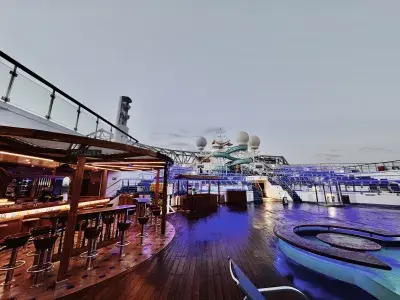
"My number one tip is always the exact same thing: make sure you have travel insurance," advises Don Terris from Don's Family Vacations. Travel insurance covers everything from your pre-cruise hotel to airfare, lost luggage, and even costly medical bills.
While onboard Sun Princess during her first Transatlantic cruise, Terris explained that there were six medical evacuations. And as well as you might plan your vacation, unexpected events can happen to anyone—illnesses and accidents do not take a vacation!
In short, having insurance gives you the peace of mind needed to focus on enjoying your trip, even if you aren't cruising during hurricane season. Travel insurance can be purchased through your cruise line or third parties. If you're a frequent traveler, you may want to consider an annual policy!
Read more: 25 Tips to deal with bad weather on a cruise
Dig deep into the impacted counties to find up-to-date information
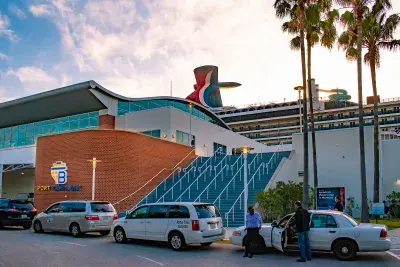
Rather than relying on the national news, take the time to conduct your own research.
Tony Barnette from La Lido Loca advises, "I think the best tip that I have, and I live...Florida, [is that] if you're someone traveling in for a cruise during hurricane season and you're concerned about embarkation ports, the best thing to do is to check the county of the port that you're traveling to."
The county's website will typically tell you what areas have been marked for evacuation, as well as whether the ports—such as Port Everglades or Port Tampa Bay—are still open.
Read more: 28 first-time cruise tips that really work
Go into the sailing with an open mind
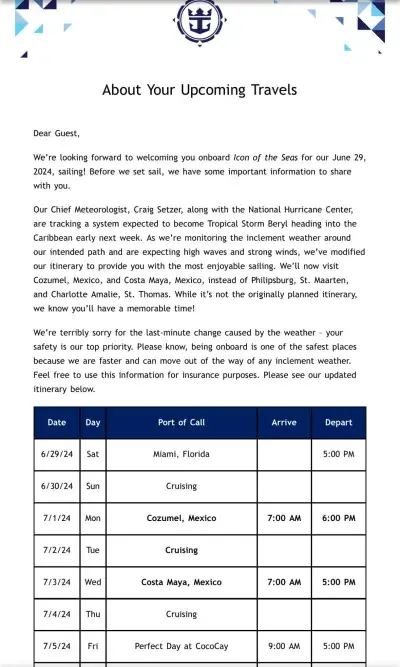
Cruising with JT explains that the Atlantic hurricane season isn't limited to September, October, and November. Instead, it encompasses the "J JASON" months of June, July, August, September, October, and November. In other words, hurricane season technically aligns with the warmer months when children are on summer break.
"If you decide to cruise during hurricane season, go in with an open mind. Your itinerary could be potentially impacted if you cruise during those months...Just know that the [cruise line and ship] has your safety as its first priority. Everything is in your best interest," he says.
Just because you will visit, for example, Mexico instead of the Eastern Caribbean doesn't mean your hard-earned vacation is ruined. Having a revised schedule is better than a canceled cruise! And even if your cruise is canceled, it is usually because there's no other safe alternative. Rest assured, though, you will receive a full refund—and typically a future cruise credit!
Read more: Disney cruise canceled as Hurricane Milton tears through the Gulf
Prepare yourself
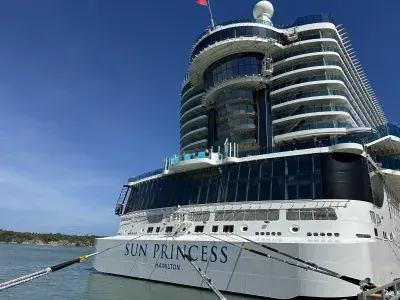
Unfortunately, hurricanes impact more than cruise itineraries. Even if your cruise is scheduled to depart on time, Tommy Allison with The Cruise Dudes Podcast recommends keeping an eye on your destination's weather conditions and pre-cruise transportation plans. "Thankfully with apps, you're able to get that information quickly," he says.
While en route to Fort Lauderdale, he explains that the Captain of his aircraft informed the passengers that they had a diversion plan in mind in case they couldn't safely make it to FLL. Despite the warning, they arrived smoothly; however, it was reassuring to know the airline was prepared with a plan in place.
On that note, he continues to advise about the importance of preparation. Instead of hoping for the best, give yourself plenty of time to make it to your embarkation port. Don't risk your vacation by flying in the morning of departure. One delay or flight cancelation could uproot all your plans! The ship won't wait on missing passengers. Instead, you'll be responsible for all costs associated with meeting the cruise in the next port—if possible.
Read more: The costly cruising mistake newbies make planning their first cruise





